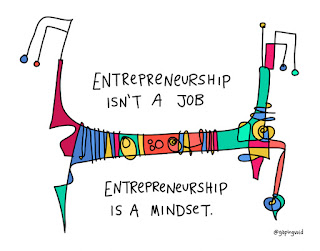Reading Reflection No. 3 – 27A
"Cognitive Surplus" by Clay Shirky
1) What was the general theme or argument of the book?
The book discussed mainly what we as a generation do with our “free time”. In the past century, television has consumed so much of our leisure time, or like Clay says, our “cognitive surplus”. What would all the time we spent on television be turned into if it were dedicated to something more productive. Our lives are so consumed with technology and being globally interconnected that it’s a normal part of life for almost all adults today.
2) How did the book, in your opinion, connect with and enhance what you are learning in ENT 3003?
I think the book connected with what I was learning because it talks about our time. What we do on our spare time is a major part of our life. Shirky also notes the importance of forming and maintain relationships. Not just personal relationships but relationships correlated to our actions.
3) If you had to design an exercise for this class, based on the book you read, what would that exercise involve?
The assignment I would create bases on this book would be a log of how we spend our “free time” throughout the week. Write down how long you had to spare and what you did during that time. Was it productive? Did it benefit anyone besides yourself? I think this would help all students become more aware of their actions and reflect, hopefully the outcome would be students striving to be more productive during that free time.
4) What was your biggest surprise or 'aha' moment when reading the book? In other words, what did you learn that differed most from your expectations?
Intrinsic motivations versus extrinsic motivation. Intrinsic motivation is a behavior that is driven by internal rewards, things we do because we want to do them and we like to do them. We are willing to do anything as long as we enjoy that work ourselves. Shirky notes how extrinsic motivations, i.e., getting compensated with wages can affect our intrinsic motivations and overshadow them. I think that is really interesting and true. A lot of people leave things they are passionate about because they rather get paid for something they find mediocre.


Amanda,
ReplyDeleteAfter reading your reflection, it actually really makes me want to read the book you chose. I think it makes some really strong points about how we spend our free time. I get so caught up in social media and what's going on on the internet that I think I end up wasting so much of my time that I could've been productive instead. I think it's dangerous for our generation, not just because it takes so much of our time, but it forces us to loose out on time that we could've been making face-to-face connections with someone. I've also found myself seeking easier jobs just to get paid but I've realized it's about finding purpose rather than waiting for the pay check every week; it's all about fulfillment.
Thank you for sharing this ! Not only did I enjoy reading your blog but it makes me think over how I spend my free time. A lot of the times, depending on everyone's lifestyle we all choose different things to do in our spare time. People who do physical activity during the day likes to relax and use the social media to do something different, and the ones who are constantly working mentally prefer to relax by exercising.
ReplyDeleteI do both, physical activity and mental activities throughout the day, and at the end of the day I like to relax and socialize with nice people. Social media is not really what I try to do in my spare time since I prefer to meditate and visualize what I have to do and day dream over how I envision myself in a future.